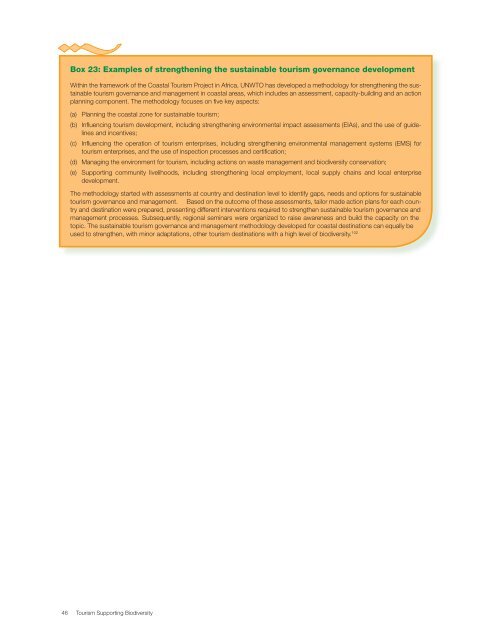1Tgjonb
1Tgjonb
1Tgjonb
You also want an ePaper? Increase the reach of your titles
YUMPU automatically turns print PDFs into web optimized ePapers that Google loves.
Box 23: Examples of strengthening the sustainable tourism governance developmentWithin the framework of the Coastal Tourism Project in Africa, UNWTO has developed a methodology for strengthening the sustainabletourism governance and management in coastal areas, which includes an assessment, capacity-building and an actionplanning component. The methodology focuses on five key aspects:(a) Planning the coastal zone for sustainable tourism;(b) Influencing tourism development, including strengthening environmental impact assessments (EIAs), and the use of guidelinesand incentives;(c) Influencing the operation of tourism enterprises, including strengthening environmental management systems (EMS) fortourism enterprises, and the use of inspection processes and certification;(d) Managing the environment for tourism, including actions on waste management and biodiversity conservation;(e) Supporting community livelihoods, including strengthening local employment, local supply chains and local enterprisedevelopment.The methodology started with assessments at country and destination level to identify gaps, needs and options for sustainabletourism governance and management. Based on the outcome of these assessments, tailor made action plans for each countryand destination were prepared, presenting different interventions required to strengthen sustainable tourism governance andmanagement processes. Subsequently, regional seminars were organized to raise awareness and build the capacity on thetopic. The sustainable tourism governance and management methodology developed for coastal destinations can equally beused to strengthen, with minor adaptations, other tourism destinations with a high level of biodiversity. 10246 Tourism Supporting Biodiversity


